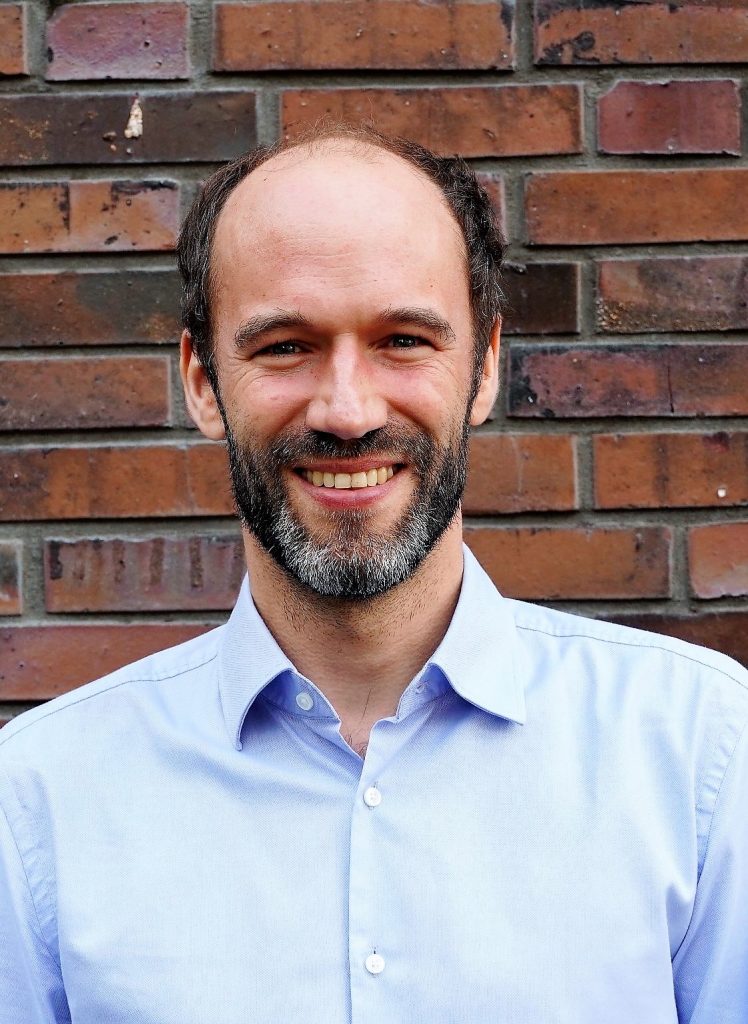When machines learn for science
Computer scientist Jan Stühmer leads the new HITS research group “Machine Learning and Artificial Intelligence” (MLI). He was concurrently appointed junior professor at the Karlsruhe Institute of Technology (KIT). Jan Stühmer develops novel algorithms and models in the field of artificial intelligence and machine learning; his fields of application include biochemistry and the life sciences.
In recent years, hardly any buzzword has become as much a part of everyday human life as “artificial intelligence” – from voice assistants and autonomous driving to generative models that create astonishing images in different artistic styles from a text description. Science, meanwhile, has long been dealing with the methods behind the buzzword. Computer scientist Jan Stühmer is working on novel algorithms and models for this. On 1 September he joined HITS as head of the new junior group “Machine Learning and Artificial Intelligence” (MLI). With this new group leader appointment, HITS now has 14 active research groups. Jan Stühmer was concurrently appointed junior professor at the Karlsruhe Institute of Technology (KIT).
At HITS, several groups are working with machine learning methods, for example in astroinformatics, computational linguistics and in the large collaboration SIMPLAIX. “The new junior group ideally complements and enriches our previous activities in the field of machine learning,” says Frauke Gräter, the scientific director of HITS. “In addition, we are also particularly pleased about the joint appointment, which reflects our close ties with KIT, one of our shareholders.”
From Munich via Massachusetts to Cambridge
Jan Stühmer’s research has led him to highly reputable academic institutions as well as to industrial research organizations. He received a doctoral fellowship from the TUM Institute for Advanced Study in 2011 and obtained his PhD in computer science from the Technical University of Munich in 2016 in collaboration with the California Institute of Technology (Caltech). Afterwards, Jan was a visiting scientist at the Computer Science and Artificial Intelligence Laboratory (CSAIL) at the Massachusetts Institute of Technology (MIT) before joining Microsoft Research as a postdoctoral researcher, working first in Cambridge, UK, and then in Zurich. Jan joins HITS from the Samsung AI Centre Cambridge, UK, where he has been a senior researcher since 2020.
“I am very excited about my new role at HITS, which offers the perfect environment for my research group through the partnership with KIT. I am particularly interested in working in an interdisciplinary research environment and collaborating with existing research groups at both HITS and KIT, for example in biochemistry, materials science, astronomy and robotics.”
Research for scientific applications
Jan Stühmer develops novel algorithms and models for artificial intelligence and machine learning. In particular, he combines insights from learning theory with methods from convex and non-convex optimization in order to derive algorithms with improved robustness and generalization properties. Jan’s further research interests include latent variable models, variational inference, and probabilistic deep learning with applications in healthcare, computer vision, and the life sciences.
Media Contact:
Dr. Peter Saueressig
Head of Communications
Heidelberg Institute for Theoretical Studies (HITS)
Phone: +49-6221-533-245
peter.saueressig@h-its.org
Scientific contact:
Jun.-Prof. Dr. Jan Stühmer
Machine Learning and Artificial Intelligence group (MLI)
Heidelberg Institute for Theoretical Studies (HITS)
Phone: +49-6221-533 220
jan.stuehmer@h-its.org
About HITS
HITS, the Heidelberg Institute for Theoretical Studies, was established in 2010 by physicist and SAP co-founder Klaus Tschira (1940-2015) and the Klaus Tschira Foundation as a private, non-profit research institute. HITS conducts basic research in the natural, mathematical, and computer sciences. Major research directions include complex simulations across scales, making sense of data, and enabling science via computational research. Application areas range from molecular biology to astrophysics. An essential characteristic of the Institute is interdisciplinarity, implemented in numerous cross-group and cross-disciplinary projects. The base funding of HITS is provided by the Klaus Tschira Foundation.
